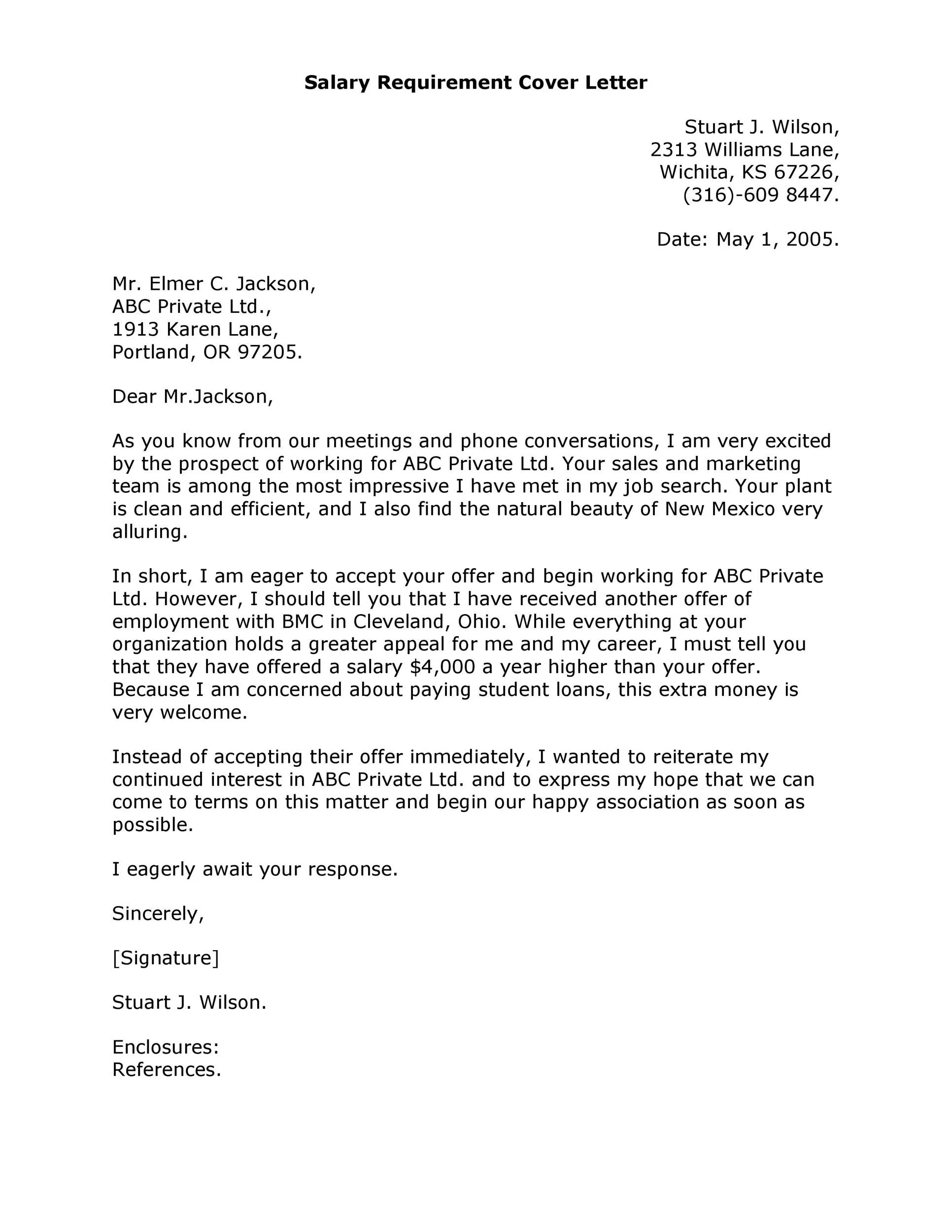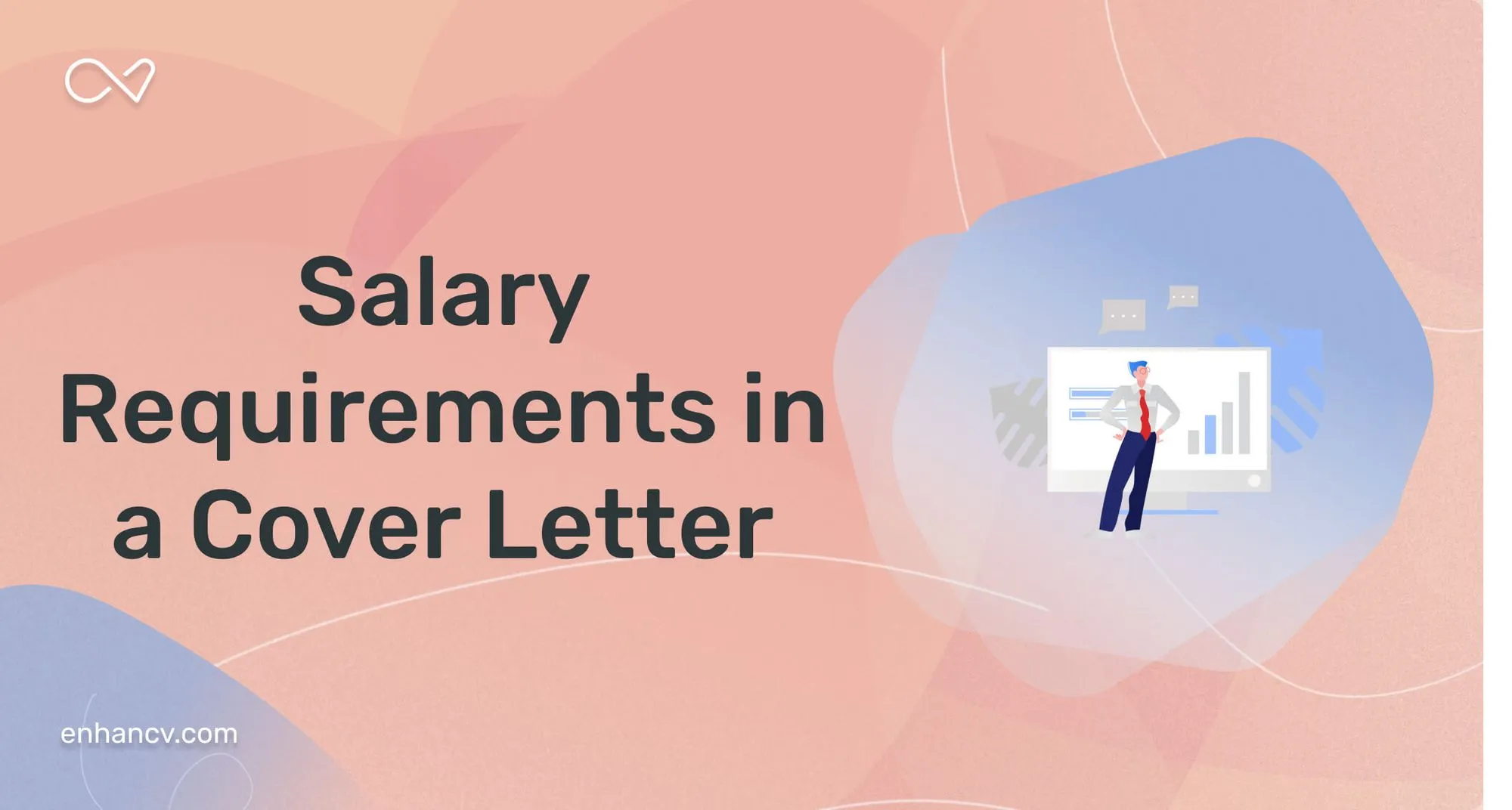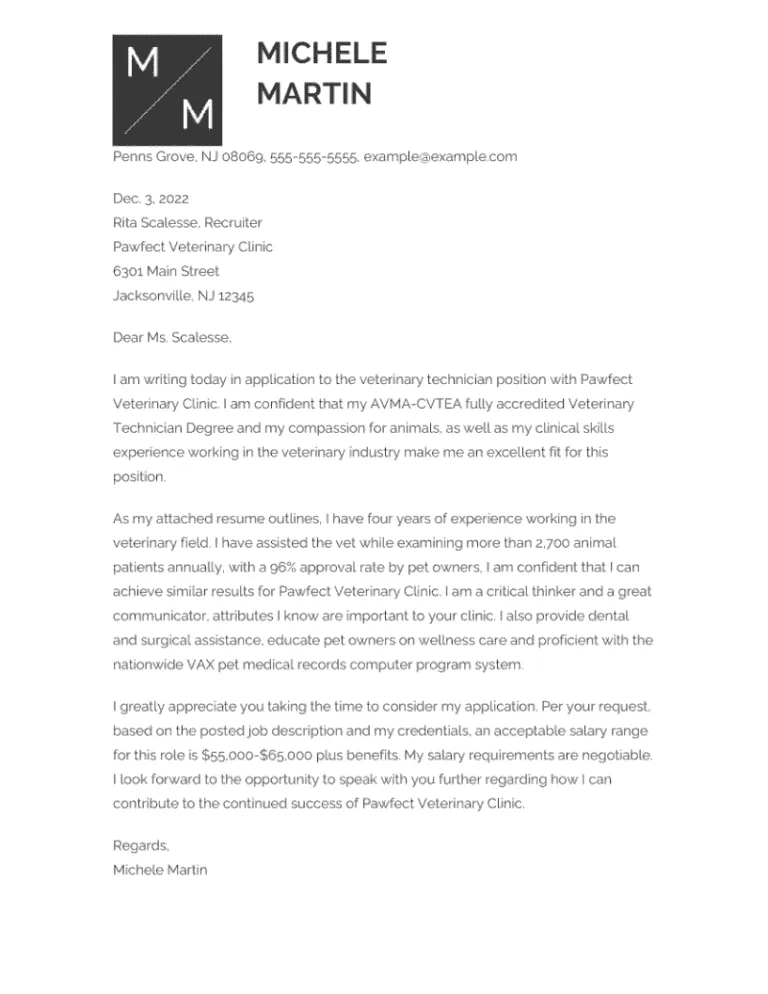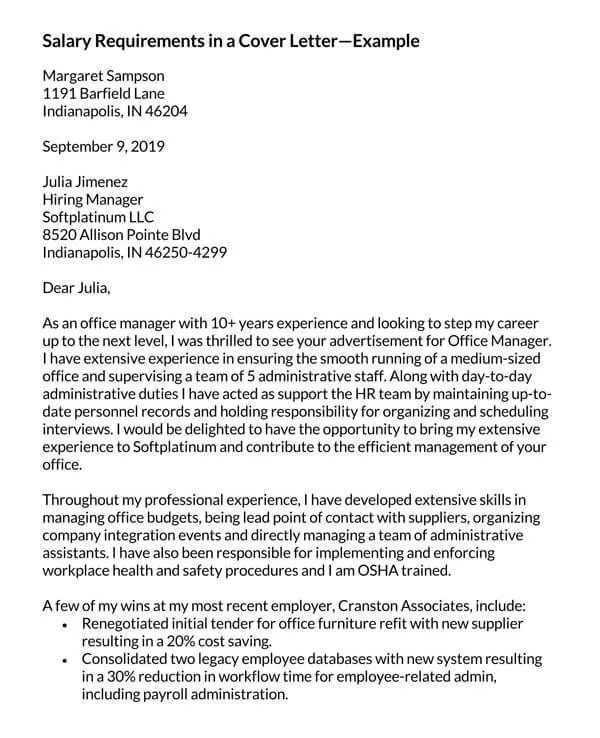What is a Cover Letter?
A cover letter is a crucial document that accompanies your resume when applying for a job. It serves as your introduction to the hiring manager, providing a personalized overview of your skills, experience, and qualifications. Unlike your resume, which presents a factual account of your professional history, a cover letter allows you to express your personality, demonstrate your enthusiasm for the position, and highlight why you are the ideal candidate. It’s your opportunity to connect with the employer on a more personal level and make a compelling case for why they should consider you for an interview. A well-crafted cover letter can significantly increase your chances of landing an interview by capturing the reader’s attention and making a strong first impression.
Why Include Salary Expectations in Your Cover Letter?
While not always mandatory, including salary expectations in your cover letter can be beneficial in certain situations. It demonstrates that you have considered your value and have a clear understanding of your financial needs. For some positions, especially those in larger organizations, specifying your salary requirements upfront can streamline the hiring process by ensuring that your expectations align with the company’s budget. It helps to avoid any misunderstandings or wasted time for both you and the employer. Additionally, it can be a sign of professionalism to be upfront about your needs. However, it’s important to consider the specific job and company culture before deciding whether to include this information. In some instances, it’s better to defer the salary discussion until later stages of the interview process.
How to Include Salary Requirements

When including salary requirements, it’s important to be both clear and strategic. You have a few options to consider. The first is to state your desired salary directly, although this is often not recommended. The second is to provide a salary range, which allows for some flexibility during negotiations. The third option is to mention that your salary expectations are negotiable and you are open to discussing them further. You can do this by stating, “My salary expectations are in line with my experience and the market rate for this position and are negotiable.” Regardless of which approach you choose, it’s essential to tailor your response to the specific job posting and your understanding of the company’s salary structure. Researching industry standards and similar roles can help you determine a realistic and competitive range.
Where to Place Your Salary Expectations
The best place to include your salary expectations is usually in the closing paragraph of your cover letter. This is a natural place to summarize your interest in the position and reiterate your key qualifications. By placing it near the end, you ensure that the hiring manager has read your entire letter and is already engaged with your application. You can include a sentence like, “My salary expectations are in the range of $X to $Y, and I am eager to discuss how my skills and experience can contribute to your team.” However, be sure to avoid making it the primary focus of your cover letter. You want to emphasize your value and enthusiasm for the role, not make it all about money. The focus should be on your qualifications and interest in the position.
Salary Range vs Specific Number
When stating your salary expectations, providing a salary range is generally preferred over a specific number. A range demonstrates flexibility and allows for negotiation based on the total compensation package, your qualifications, and the employer’s budget. It also allows you to signal your understanding of the salary market and avoid potentially under-valuing your skills. The range should be realistic, reflecting your research on industry standards and the cost of living in the location of the job. Make sure the range is not too wide, as it might seem unrealistic. A range of $5,000 to $10,000 is reasonable, but a range of $20,000 might be too broad. Always be prepared to justify your salary range during the interview process by referencing your skills, experience, and any specific accomplishments.
Example Cover Letter Samples

Here are some example snippets of how to include salary expectations in your cover letter.
Example 1 (Salary Range): “My salary expectations are in the range of $65,000 to $75,000, commensurate with my experience and the responsibilities of this role.”
Example 2 (Negotiable): “I am seeking a position that aligns with my experience and the market rate. My salary expectations are negotiable, and I am eager to discuss the details during an interview.”
Example 3 (Deferred): “I am excited about the opportunity to learn more about this position and discuss my qualifications further. I am open to discussing salary expectations during the interview process.”
Cover Letter Template for Salary Negotiation
Creating a template can help you quickly customize your cover letter to each job application, including a section for salary requirements. Here is a general template outline for a cover letter.
Header (Your contact information and the date)
Recipient Information (Hiring manager name and company address)
Opening Paragraph (State the position you are applying for and where you found the job posting)
Body Paragraph 1 (Highlight your key qualifications and skills that match the job description)
Body Paragraph 2 (Describe your achievements and give a specific example that matches the company’s needs)
Closing Paragraph (Reiterate your interest and include your salary expectations)
Closing (Sincerely or Best regards)
Your Signature (Type your name)
Tips for Discussing Salary in Your Cover Letter
Always tailor your salary expectations to the specific job and company. Don’t be afraid to research the average salaries for similar positions in the industry or location. Keep your response concise and avoid excessive detail. Make sure that your salary expectations align with your experience and the market value of the role. Be professional and confident. Consider deferring the salary discussion if the job posting doesn’t specifically request it. If you decide to provide a salary range, research the market value for the position and provide a realistic range that aligns with your skills, and the company’s expected budget.
Dos and Don’ts for Salary Discussion

Do your research and know your worth. Do be flexible and willing to negotiate. Do be professional and clear in your communication. Do state your salary expectations as a range rather than a specific number. Do be prepared to discuss your salary expectations in more detail. Don’t make salary the primary focus of your cover letter. Don’t undervalue yourself. Don’t provide an excessively wide salary range. Don’t be afraid to defer the salary discussion if you are unsure. Don’t be demanding or inflexible in your expectations.
Common Mistakes to Avoid
One of the biggest mistakes is not doing your research on the salary expectations. This could lead you to either ask for too little, or ask for a salary that is out of range. Another mistake is focusing too much on salary, rather than on how you can benefit the company. Be sure to follow the guidelines discussed above. Finally, don’t state an overly broad or unrealistic salary range.
In conclusion, including your salary expectations in your cover letter can be a strategic move, but it requires careful consideration. By understanding the best practices and avoiding common mistakes, you can increase your chances of making a positive impression and successfully navigating the salary negotiation process. Remember to focus on your value, tailor your approach to each job, and be prepared to discuss your expectations further. Good luck with your job search!
